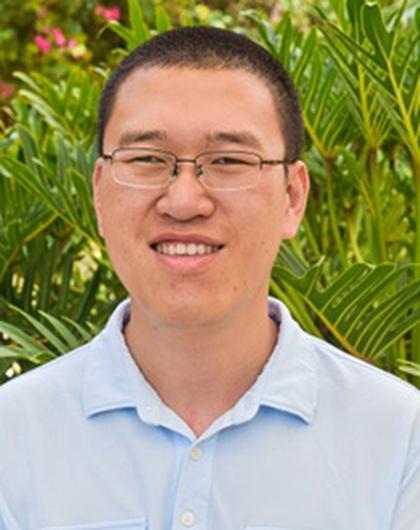Scholars
Feng Hao
University of South Florida
Based in
United States
North America
Feng Hao is Associate Professor in the Department of Sociology at University of South Florida. Dr. Hao has three major areas of research. One is to study public opinion and behavior about the environment. The other involves examining anthropogenic drivers of climate change and renewable energy deployment. The third is to address the pandemic and understand American’s response to COVID–19 (e.g., mask-wearing, vaccine uptake, etc.).

Country(ies) of Specialty
United States ChinaFocus areas of expertise
Climate policy and politics Renewable energy Behavioral action Public opinionPublications
Articles
Hao, Feng. 2023. “Biden’s Approval, Record Inflation, Economic Recovery, COVID-19 Mortality, and Vaccination Rate among Americans—A Longitudinal Study of State-level Data from April 2021 to January 2022.” Preventive Medicine Reports 36: 102454.
Hao, Feng, and Wanyun Shao. 2023. “Social Network, Political Climate, Income Inequality, and Americans Uptake of Monovalent COVID-19 Booster.” Vaccine 41(41): 6077–6082.
Hao, Feng. 2023. “Social Network, Biden Approval, and Pediatric COVID-19 Vaccine Uptake.” Sociology Compass 17(10): e13126.
Hao, Feng, Wanyun Shao, and Jay L. Michaels. 2023. “A Study of American Response to Climate Change and the Influence of Carbon Dependency, Social Capital, and Political Orientation.” Society & Natural Resources 36(9): 1119–1139.
Hao, Feng. 2023. “The Driving Forces of U.S. Renewable Energy Consumption—A Longitudinal Analysis of Data from 1997 to 2019.” Sociological Spectrum 43(1): 1–15.
Hao, Feng. 2023. “A cross-national study of multilevel determinants on public fully vaccination against COVID-19.” Health & Place 79: 102963.
Hao, Feng. 2022. “Multilevel Determinants on COVID-19 Booster intention among Americans.” Preventive Medicine 164: 107269.
Hao, Feng, and Wanyun Shao. 2022. “Understanding the Influence of Political Orientation, Social Network, and Economic Recovery on COVID-19 Vaccine Uptake among Americans.” Vaccine 40(14): 2191–2201.
Hao, Feng, Wanyun Shao. 2021. “What Really Drives the Deployment of Renewable Energy? A Global Assessment of 118 Countries.” Energy Research & Social Science 72: 101880. doi:10.1016/j.erss.2020.101880.
Hao, Feng, and Wanyun Shao. 2021 “Understanding the Effects of Individual and State-level Factors on American Public Response to COVID–19.” American Journal of Health Promotion. doi:10.1177/08901171211017286.
Hao, Feng, Wanyun Shao, and Weiwei Huang. 2021. “Understanding the Influence of Contextual Factors and Individual Social Capital on American Public Mask Wearing in Response to COVID–19.” Health & Place 68: 102537. doi:10.1016/j.healthplace.2021.102537.
Hao, Feng, Xinsheng Liu, and Jay L. Michaels. 2020. “Social Capital, Carbon Dependency, and Public Response to Climate Change in 22 European Countries.” Environmental Science & Policy 114: 64–72. doi:10.1016/j.envsci.2020.07.028.
Hao, Feng, and Lijun Song. 2020. “Environmental Concern in China: A Multilevel Analysis.” Chinese Sociological Review 52(1): 1–26. doi:10.1080/21620555.2019.1654367.
Hao, Feng. 2020. “A Study of Ecologically Unequal Exchange for 89 Countries between 1990 and 2015.” The Social Science Journal 57(2): 245–257. doi:10.1016/j.soscij.2019.01.009.
Hao, Feng and Bethany L. Van Brown. 2019. “An Analysis of Environmental and Economic Impacts of Fossil Fuel Production in the U.S. from 2001 to 2015.” Society & Natural Resources 32(6): 693–708. doi:10.1080/08941920.2019.1574044.
Hao, Feng, Jay L. Michaels, and Shannon E. Bell. 2019. “Social Capital’s Influence on Environmental Concern in China: An Analysis of the 2010 Chinese General Social Survey.” Sociological Perspectives 62(6): 844–864. doi:10.1177/0731121419835504.
Hao, Feng, and Yan Wang. 2018. “Acceptance of Higher Taxes for the Environment: A Cross-national and Multilevel Study based on Seven Years Data from ISSP and WVS Surveys.” International Journal of Sociology 48(4): 340–365. doi:10.1080/00207659.2018.1515704.


